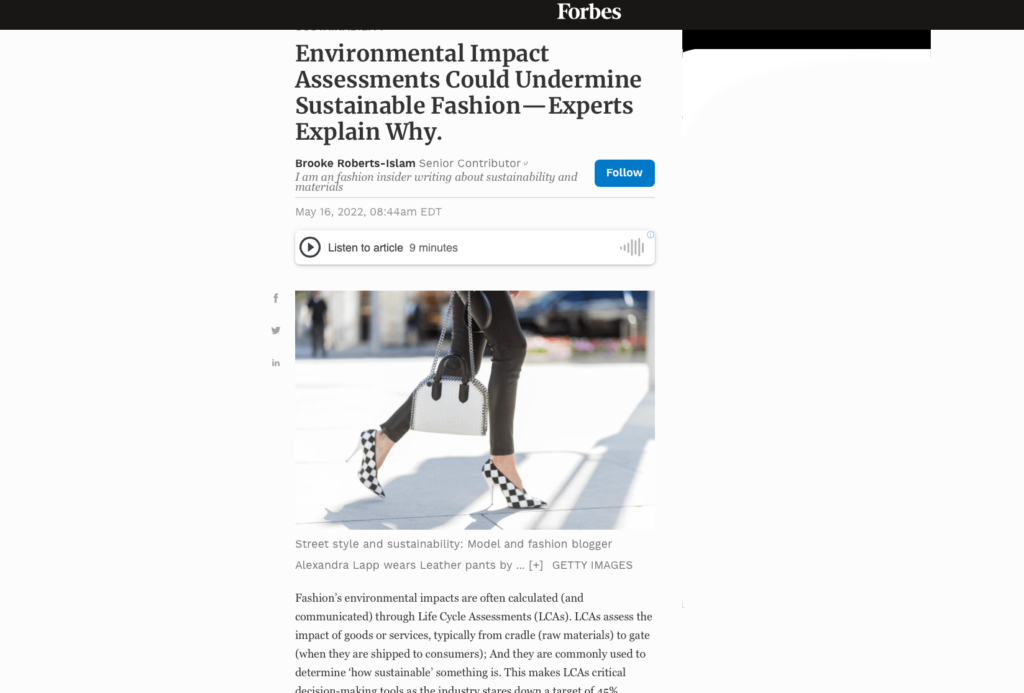Forbes | As next-generation materials emerge as a promising piece of the sustainable fashion puzzle, there’s an urgent need to gather reliable, robust insights on their impacts. But assessing and interpreting the environmental footprint of these innovative materials against incumbent ones represents a challenge for innovators, with fast-moving R&D processes, limited available data and the need to think holistically about trade-offs. Quantis’ Global Fashion & Sporting Goods Lead, Philipp Meister, and Global Innovation Lead Marcial Vargas, delved into this complex topic in a recent piece in Forbes. The takeaways? It’s critical to conduct screening assessments on a continuous basis throughout the R&D process to ensure the impacts of each material iteration are accurately captured and subsequently interpreted by experts to drive science-based decision-making.
“‘Materials [are] developing rapidly, so impact assessment needs to be done dynamically and repeatedly–it needs to be a continuous and somewhat integrated assessment to guide the R&D process,’ adds Meister. This means Quantis works with some early-stage innovators on a flexible retainer basis, guiding them with ongoing assessment. Vargas adds that LCAs conducted in this manner have successfully allowed the modeling of lower impact factories in the food and beverage industry. ‘For the fashion industry, this will also be the case’ he believes…What has transpired from these interviews is that the current LCA methodologies can and do work, but only if interpreted and disseminated according to interpretations by LCA specialists.”
Related resources

How To Build a Successful Resale Program (And Why Most Brands Should Aim to Have One)
With circularity a top-of-mind issue for fashion brands, resale and refurbishment has emerged as a strategic lever for driving industry transformation.

Counting the cost of fashion
BBC | Quantis' Global Fashion + Sporting Goods Lead, Philipp Meister was invited as a guest on BBC World Service podcast The Climate Question.

Fashion Is Overselling Circularity And Recycling — But There Is Hope
Forbes | A new piece in Forbes explores where the fashion industry is falling short — and cites Quantis research to back it up.

